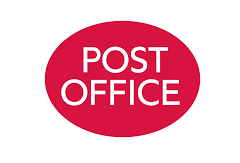2 May 2024
Public Utilities
Making bets.
By John Watson
No one can see the film about Mr Bates and the Post Office without being angry so naturally I vented my fury on my wife. It was she what did it, I shouted. A company, however big, is only the aggregate of its members and hadn’t she held shares since privatisation? Her company, her directors, her responsibility!! “Res ipsa loquitur” as Cicero would have put it had he done GCSE Latin.
Naturally I expected her to be embarrassed. A few mea culpas perhaps and then an excuse worthy of Nazi Germany that she didn’t know what was going on. To my surprise however she looked relaxed and soon I discovered why. It seems that it was the Royal Mail which was privatised and that the Post Office is still under state control. Not hers, then.
It is a pity really. Just imagine the field day that our Guardian reading friends could have had if it had been privately owned. “Profit before people,” “more regulation needed,” “inevitable results of greed”, the headlines would have screamed, the prose getting more purple by the minute. Then a ministerial statement of the sort they make when trains are cancelled, talking about natural monopolies and nationalisation. All that fun lost for a silly technicality about ownership. Bah!
But there we are. Just when the shortcomings of the water companies were being attributed to private sector profiteering, the public sector has produced a humdinger of a scandal of its own. Which sector is the better custodian of public services? The answer to that is neither or both, because decisions such as how much to spend on storm drains or whether a computer system has failed are not made by sectors but by people and the pressures on the people who manage public utilities in the public and private sectors are very similar. The manager of the private utility must always keep an eye to the bottom line. His shareholders expect it and his bonus probably depends on it too. The public sector manager has much the same concerns. His profits or losses affect government finances and he will have to answer to the Treasury for poor financial performance. His remuneration too may depend on what he does.
That is not to say that the systems do not each have advantages. Proponents will point to the greater innovation one might expect from the private sector and the fact that more ruthless management makes doubling down less likely; on the other hand the steadier hand of the state may keep the business more focussed and less likely to be exploited by adventurers. Possibly, but the real concerns of those who wish to improve the management of utilities should not be who owns them but rather the quality of those doing the management and the extent to which their concerns focus too much on the short term or the justification of past mistakes.
Look for example at drainage. The pollution of the Thames with sewage immediately before the boat race must be an indicator that the system of drains is not up to dealing with the increased rainfall which seems to have been caused by global warming. Managers, whether private or public, who looked at past records might have come to the conclusion that the system was adequate but in fact it wasn’t. It needed more spare capacity as does the railway system and any other system subject to fluctuating demand, and the trouble with excess capacity is of course that it is expensive and by its very nature may never be used. How tempting for the manager, public or private, to wing it and to assume that the worst will never happen.
The trouble is that there is no automatic right or wrong about this. Too much overcapacity is simply wasteful. Too little and disaster will follow. In the end it is a bit of a bet and whether risks can be taken to save costs will depend on the consequences of failure. The quite extraordinarily good safety record of the world’s airlines reflects the way in which bets are weighted towards safety in that area. The fact that trains are often late reflects a different balance in railway timetabling.
It is in the nature of bets that sometimes they go wrong but that doesn’t mean that it is wrong to make them. So when the train is late or the river fills with pollution, the default reaction should not be to immediately start blamestorming, although blame may be appropriate if the bets were negligently made, but rather to expect management to look at the new information. Nor should those involved feel the need to double down; rather they should be encouraged to reappraise the risks and then to remake the bets by reference to the new facts. Had the Post Office management taken that line when problems with Horizon began to emerge, a great deal of angst would have been avoided.


